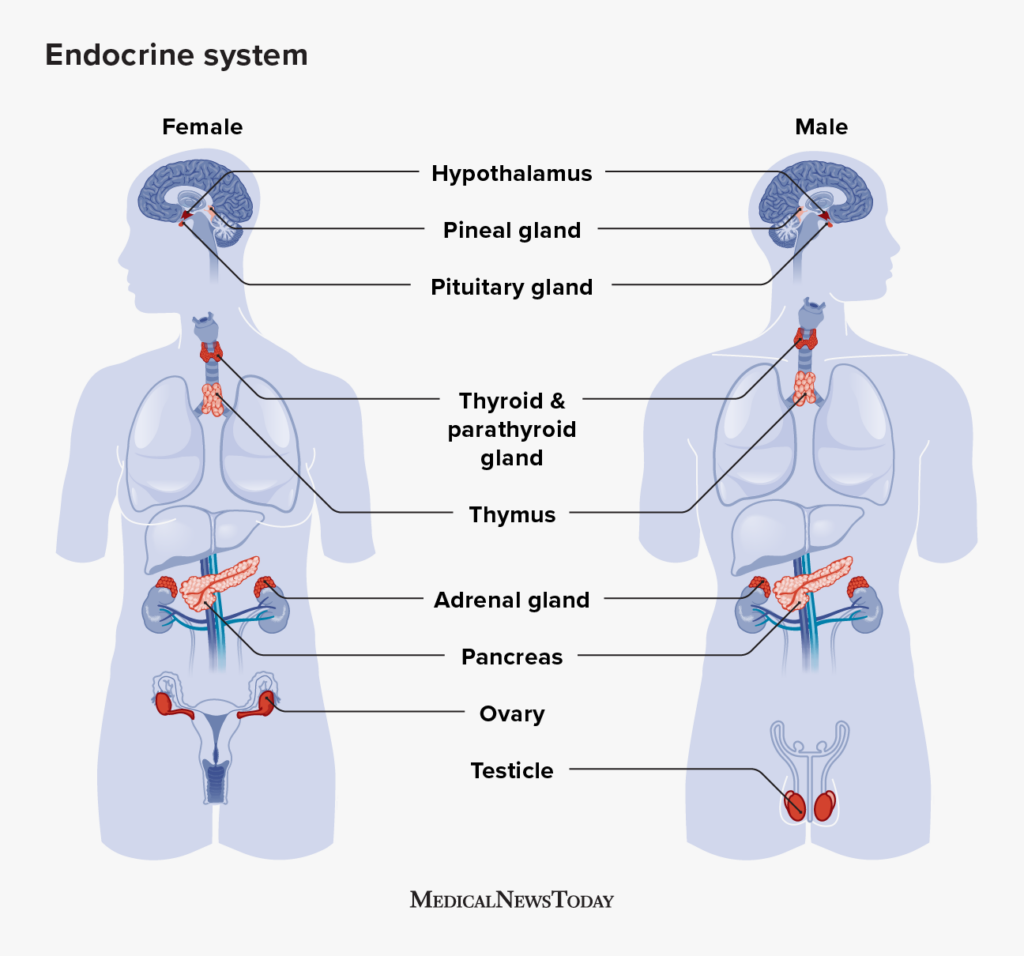Endocrinology: Looking Into the Globe of Hormonal Agents and Wellness
Wiki Article
The Science Behind Hormone Guideline: Insights From an Endocrinologist
The Scientific Research Behind Hormone Policy: Insights From an Endocrinologist provides a comprehensive expedition of the complex processes involved in hormonal agent guideline. Whether you are a medical professional looking for a much deeper understanding of endocrine function or a specific interested in discovering regarding the science behind hormonal agent regulation, this book is a very useful source.Hormones and Their Features
Hormones play vital duties in the policy and coordination of various physical processes within the body. These chemical messengers are generated by endocrine glands and are launched into the blood stream, where they take a trip to target cells or organs to apply their effects. The features of hormones vary and include almost every facet of human physiology.One of the key functions of hormonal agents is to preserve homeostasis, which is the secure inner atmosphere necessary for the body to operate efficiently. As an example, insulin, a hormone generated by the pancreas, controls blood sugar levels by advertising the uptake and storage space of sugar in cells. Another hormonal agent, cortisol, aids the body respond to anxiety by enhancing blood sugar level levels and reducing the body immune system.
Hormones likewise play crucial functions in development and development. Growth hormone, generated by the pituitary gland, boosts the growth of cells and bones, while thyroid hormones manage metabolic rate and influence the advancement of the nerve system - Texas endocrinology. Furthermore, reproductive hormones, such as estrogen and testosterone, are in charge of the development and upkeep of secondary sexual features and the guideline of the menstrual cycle
The Endocrine System: An Introduction
Playing an important duty in the regulation and control of physiological processes, the endocrine system is a complicated network of glands that create and release hormones into the bloodstream. These glands, including the hypothalamus, pituitary gland, thyroid gland, adrenal glands, pancreatic, ovaries, and testes, produce hormones that function as chemical messengers, influencing various bodily features. The endocrine system operates in combination with the worried system to keep and regulate homeostasis, making certain that the body's interior atmosphere stays stable.It creates hormonal agents that inhibit the launch or promote of hormonal agents from the pituitary gland, which in turn manages the activity of various other endocrine glands. The thyroid gland, located in the neck, produces hormones that manage metabolic process and power equilibrium.

Law of Hormonal Agent Production
The regulation of hormonal agent production entails an intricate interplay in between different glands and feedback devices within the endocrine system. Hormonal agents are chemical messengers that play a crucial function in keeping homeostasis and working with different physical processes in the body. The manufacturing of hormones is tightly managed to ensure the correct functioning of the endocrine system.The hypothalamus, situated in the brain, works as an essential regulatory authority of hormone manufacturing. It launches hormones that stimulate or hinder the manufacturing of hormones by the pituitary gland, which is commonly referred content to as the "master gland" of the endocrine system. The pituitary gland, subsequently, creates hormonal agents that act upon various target glands throughout the body, boosting them to create and release certain hormonal agents.
Comments systems also play an important function in hormone policy. When hormone levels increase above or fall below the optimal range, the body triggers mechanisms to either decrease or increase hormone production, specifically, to recover equilibrium.
Responses Loops in Hormonal Agent Regulation
Responses loopholes play a critical role in the law of hormonal agent production. These loops entail a series of interactions in between the endocrine glands, hormonal agents, and target organs to maintain homeostasis in the body. There are 2 sorts of feedback loops: adverse comments and favorable responses.When hormone degrees climb over a particular threshold, the hypothalamus in the brain signifies the pituitary gland to reduce hormone production. Alternatively, when hormonal agent degrees go down below the threshold, the hypothalamus boosts the pituitary gland to raise hormonal agent manufacturing, bring back balance.
Positive responses loops, on the various other hand, amplify hormone manufacturing. This occurs when a hormone promotes the launch of more of the exact same hormonal agent, resulting in a fast rise in its levels. Positive feedback loopholes are much less usual in hormonal agent regulation and are typically included in details physical processes, such as childbirth and lactation.
Aspects Affecting Hormonal Agent Equilibrium
Factors influencing hormone balance include dietary options, way of life routines, and environmental exposures. These elements can have a substantial effect on the fragile equilibrium of hormonal agents in the body, influencing numerous physical procedures and overall wellness.Nutritional selections play a vital duty in hormonal agent guideline. Consuming a well balanced diet regimen that includes a variety of nutrients is essential for keeping hormone balance.
Way of living routines, such as exercise, sleep patterns, and stress monitoring, likewise influence hormonal agent balance. Regular exercise assists manage hormonal agent levels, advertises Recommended Reading overall health, and minimizes the risk of hormone disorders. Ample sleep is crucial for hormone manufacturing and policy, as interfered with sleep patterns can cause imbalances. In addition, chronic stress can dysregulate the hypothalamic-pituitary-adrenal (HPA) axis, a principal in hormone policy, leading to a cascade of hormone imbalances.

Conclusion
In verdict, recognizing the scientific research behind hormonal agent law is essential for maintaining total wellness and health. Hormonal agents play important functions in various physical features, and their production is regulated by intricate comments loops.The Scientific Research Behind Hormone Law: Insights From an Endocrinologist uses an extensive expedition of the elaborate procedures included in hormone law. It produces hormonal agents that stimulate or hinder the release of hormonal agents from the pituitary gland, which in turn controls the task of other endocrine glands. It launches hormonal agents that stimulate or hinder the production of hormonal agents by the pituitary gland, which is frequently referred to as the "master gland" of the endocrine system. The pituitary gland, in turn, generates hormonal agents that act on various target glands throughout the body, boosting them to produce and release visit this web-site certain hormonal agents.
When hormone levels climb above a specific limit, the hypothalamus in the mind signals the pituitary gland to reduce hormonal agent manufacturing. (Best endocrinologist in texas)
Report this wiki page